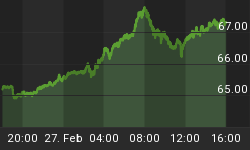After recent events, it is harder than ever to take the "efficient market" hypothesis seriously, if you ever believed it at all. The serial inflation and subsequent busts of stock bubbles around the world and throughout history have shown us that markets are neither rational nor efficient. Market participants are driven by the emotional pendulum of fear and greed. Day after day the eternal battle is fought on the market floor between the bulls and bears, the optimists and the pessimists, the greedy and the fearful. Over time, trends form. When the optimists are in charge, it means a bull market, regardless of what rational analysis might dictate.
 Remember the good old 1990's - Webvan, Kozmo, Pets.com and all the other spectacular IPOs that raised hundreds of millions in the dot.com boom? (Pets.com raised $82.5 million in an IPO in February 2000 before collapsing nine months later.)
Remember the good old 1990's - Webvan, Kozmo, Pets.com and all the other spectacular IPOs that raised hundreds of millions in the dot.com boom? (Pets.com raised $82.5 million in an IPO in February 2000 before collapsing nine months later.)
It was not just investors; society at large was exuberant. The cold war had ended, and even though the US was bombing Iraq near daily, the perception that global peace prevailed was widespread. People were positively giddy with all of their new tech toys - cell phones, laptops, Windows 95 and of course, the Internet. "Hope" was not a slogan that required endless incantation; it was the expressed emotion of the prevailing social mood. Life was fun and exciting, the future was bright and the stock market reflected that optimism.
It was that optimism that induced people into taking on more debt to buy houses they couldn't afford and to fill them with things they didn't need.
Fast forward to today's darkening social mood. Fear and regret is so pervasive that you can practically smell it - from the halls of a panicked Congress to the private thoughts of millions of people living out quiet lives of desperation. Yesterday's hope of a bigger house has given way to today's desperate fear of homelessness. There is no hope that money borrowed, spent or lent today will ever be seen again, so citizens don't borrow and banks won't lend. The ferocious stock market crash reflects the sickening sense of loss and regret: Why didn't I cash out? When will I ever be able to retire?
 Many would argue that today's crummy economy caused the stock market to crash or vice versa - that the crash caused the crummy economy. Either way, it is certainly believed that the crash and the bad economy are the cause of the current fear and regret, just as the booming economy and stock market of the 90's were the cause of the widespread social exuberance of the day.
Many would argue that today's crummy economy caused the stock market to crash or vice versa - that the crash caused the crummy economy. Either way, it is certainly believed that the crash and the bad economy are the cause of the current fear and regret, just as the booming economy and stock market of the 90's were the cause of the widespread social exuberance of the day.
Robert Prechter argues otherwise in his seminal 1985 essay, "Popular Culture and the Stock Market." In it, he describes correlations between the stock market and cultural trends such as those in movies, music, fashion, art, literature, and politics. The example we're all familiar with is the correlation between the length of mini-skirts and the height of the stock market (the shorter the skirts, the higher the market!).
But the key point that Prechter introduces in the article is that the short skirts don't cause the hot market, or vice versa, but that they are both expressions of the same thing. That "thing" is social mood.
You can sense social mood subjectively in politics, art, movies, music, and fashion, but nowhere is it more meticulously recorded and quantified than in the stock market. People buy stocks not because they're great values, or great businesses, (see Pets.com) but reasons dictated by mood. The stock market is a barometer not merely of financial value, but of social mood. Note the correlation between the theme and tone of popular music and the rise and fall of the market:
The effects of social mood have emergent, organic growth properties that are governed by natural principles. Because the stock market is the result of human social activity, price action is subject to the same natural laws and principles. Prices in the stock market form fractal patterns with predictive power when interpreted under the Elliott Wave Principle.
According to the Wave Principle, the dramatic collapse that we have just lived through was not the end, but only the beginning of the end of a long cycle that dates back to the South Sea Bubble, prior to the American Revolution! The recent vicious decline foreshadows a darkening of mood that will grip not only financial markets, but society at large in the coming years. Certainly you've already noticed the shift. You can sense that things are different than they were before. A massive change in social mood is underway.
"Popular Culture and the Stock Market" provides a foundation for understanding the Wave Principle and the nascent science of Socionomics, allowing you to anticipate and understand the coming changes in the darkening social mood as it unfolds and permeates every aspect of society in the coming years.
The predictive powers of the Wave Principle dictate that things won't be going back to "normal" anytime soon.















